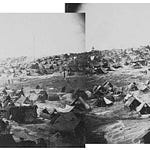Originally published on October 11, 2021 (Episode 227)
Introduction
In the last days of 1358, thousands of French villagers across northern France revolted against a faltering regime, from Normandy in the west to Picardy and Champagne in the east. Castles and manor houses were burned and looted, noblemen and their families assaulted, murdered, and perhaps raped. Enraged nobles counterattacked, executing rebels—or those they believed to be rebels—and burning entire villages.
This was the Jacquerie, so named for “Jacques Bonhomme,” the nickname given to its participants. It was one of many calamitous events in a decade that had already seen the devastation of the Black Death in 1348. But why did this revolt arise? Who were its participants? Why did it collapse so quickly? And did it leave any lasting effects?
About the Guest
Justine Firnhaber-Baker is Professor of History at the University of St. Andrews and the author of The Jacquerie of 1358: A French Peasant’s Revolt (Oxford University Press, 2021).
For Further Investigation
Justine Firnhaber-Baker, The Jacquerie of 1358: A French Peasant’s Revolt (Oxford University Press, 2021)
Justine Firnhaber-Baker and Dirk Schoenaers (eds.), The Routledge History Handbook of Medieval Revolt (Routledge, 2016)
Samuel K. Cohn Jr., Lust for Liberty: The Politics of Social Revolt in Medieval Europe, 1200–1425 (Harvard University Press, 2006)
💬 Listen & Discuss
What does the Jacquerie reveal about the pressures on medieval society in the wake of plague, war, and taxation? Share your reflections in the comments — and consider forwarding this episode to a friend interested in the deep roots of revolution.











